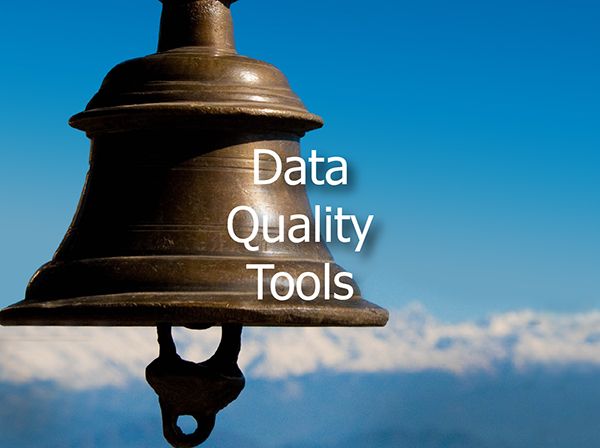
Data Quality (DQ) tools are software solutions that aid in cleaning data, improving data integrity, and ensuring the accuracy of information. Quality management is a key component of business intelligence and big data. Through Data Quality management, you can ensure that your organization’s data is accurate and relevant.
These tools are frequently found within master data management (MDM) platforms and often partner with other enterprise applications. They help organizations manage data across the entire lifecycle of an organization’s data assets. This can be done using the six Data Quality dimensions: validity, accuracy, completeness, consistency, timeliness, and uniqueness.
You can use Data Quality tools to:
- Identify duplicate records (matching identifiers or names) across multiple datasets
- Spot missing fields with no value in your datasets
- Discover missing values for particular fields in your datasets
- Detect missing values for variables such as age, gender, etc.
Other Definitions of DQ Tools
- “The processes and technologies for identifying, understanding and correcting flaws in data that support effective information governance across operational business processes and decision making. The packaged tools available include a range of critical functions, such as profiling, parsing, standardization, cleansing, matching, enrichment and monitoring.” (Gartner)
- Tools that “clean data by removing formatting errors, typos, and redundancies, while ensuring that organizations apply rules, automate processes, and have logs that provide details about processes.” (Datamation)
- Tools that are “used to monitor and analyze business data, determining if the quality of data makes it useful enough for business decision-making while also defining how data quality can be improved.” (TechRepublic)
Use Cases of Data Quality Tools
- Data standardization: You can set specific rules and standards within the tool that align with your organization’s requirements. This ensures that any dataset passed through is standardized per measures set by your business and relevant regulatory authorities.
- Data profiling: Data Quality tools can give you a much more accurate picture of a particular dataset and how to use it in a larger organizational context. For example, by ensuring that datasets have been analyzed and maintained accurately, risk management teams can accurately assess the risks and make data-driven decisions.
- Geocoding: This is particularly useful for companies with a global presence or working with customers across the globe. Geocoding is the art of correcting personal data to comply with international standards. Businesses can offer better customer experiences using this data.
Benefits of DQ Tools
- Enable organizations to enrich existing datasets with more meaningful information that gives additional context
- Enhances customer experience, as businesses can create targeted campaigns and user experiences using the right data
- Help businesses become more agile, thanks to less duplication and cost, and shorter time to market
- Allow companies to close sales faster, as the sales team has personalized data for each prospect, enabling a targeted sales process and increased conversions
- Help incorporate suitable Data Governance measures throughout the organization so that you can easily track and access data
Image used under license from Shutterstock.com